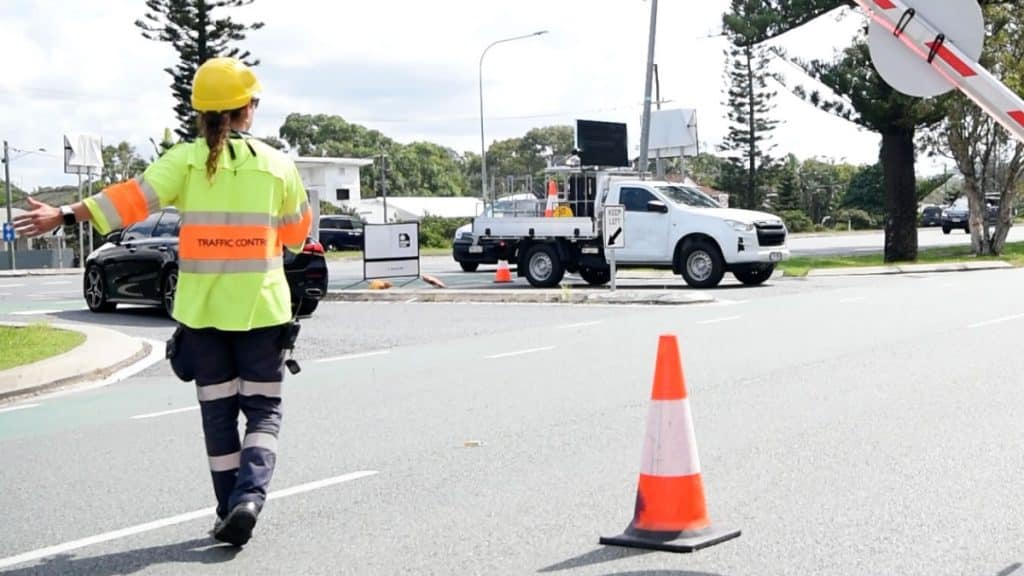A certification course as simple as traffic control and management, can open doors for you to a wide range of careers. And according to Glassdoor, traffic controllers can make up to $80k per year.
While many people may not initially consider the field of traffic control a viable career option, it offers valuable skills and certifications that can boost your professional journey.
The demand for trained traffic control professionals is more than ever, whether it’s construction projects, or event management and public safety.
Here’s why traffic control education is worth your attention and how it can help you build a more secure and rewarding career
Why does traffic control education matter?
When talking about traffic control, people only imagine a person standing in the middle of a road directing cars. But there’s more to it. The skills learned through these courses are highly transferable and beneficial in a variety of industries.
One of its advantages is that it teaches essential skills in areas like planning, risk management, and communication. These are skills highly valued in multiple sectors, including construction, event coordination, public safety, etc.
In construction, every project that involves public roads and transportation needs experienced traffic controllers. They make sure of the safety of workers and the smooth flow of traffic.
Similarly, during large public events, such as concerts, sports events, or festivals, traffic control professionals manage crowd movement and ensure safety.
The opportunities are extensive, and having a traffic control education can make you an appealing candidate for employers across these sectors.
Top benefits of traffic control education
Become more employable
Traffic control education boosts your employability. In industries like construction, logistics, and such, employers search for skilled professionals who can manage traffic, direct vehicles, and maintain a safe working environment.
Certification helps you meet the legal and safety requirements and makes you a more attractive candidate for potential employers.
Competitive salaries and career advancement
A career in traffic control often comes with competitive wages. The salary varies according to location and industry, but skilled traffic controllers can earn a steady income plus the potential for overtime.
A traffic management course also helps in career advancement. Many traffic controllers move into supervisory or managerial roles, where they oversee teams and manage large-scale traffic operations.
Flexible career options
Traffic control and management is a career that offers flexibility. You can work full-time, part-time, or even as a seasonal worker. Many traffic control professionals work as contractors, which allows them to choose which projects to take on.
Skills you gain in traffic control education
Traffic control education equips you with a wide range of skills useful in various aspects of life and work.
Risk assessment and safety awareness
Traffic control training teaches you how to assess risk and ensure safety on the job. These skills are useful in traffic control as well as for a wide range of careers.
Communication and teamwork
Effective communication is a cornerstone of traffic control. You’ll learn how to communicate with drivers, pedestrians, and coworkers clearly. Good communication minimises confusion and makes sure everyone on site is aware of safety measures.
Problem-solving under pressure
During traffic control, you need the ability to think on your feet and solve problems quickly. On the job, you’ll need to make rapid decisions to keep traffic moving with safety, especially when things go wrong. Whether it’s a roadblock or an unexpected detour, traffic controllers need to remain calm and figure out the best solutions.
Which industries hire traffic control professionals?
Traffic control professionals are in demand across several industries.
Construction and infrastructure
Traffic controller is a demanding career in construction projects that affect public roads. Workers are responsible for maintaining traffic flow while also protecting the workers on site.
Event management and public events
Large-scale public events such as festivals, parades, and sports competitions require experienced traffic controllers.
Public safety and emergency response
In times of disaster or emergency, traffic control professionals are often called upon to help manage evacuation routes and assist emergency services.
Summary
For people interested in construction, event management, or public safety sectors, traffic control education could be a viable option.
It’s a unique opportunity to build a stable, rewarding career with flexible options. Additionally, more and more cities are heavily investing in smart infrastructure projects, which further increases the demand for traffic control professionals. So, whether you’re a civil engineer who wants to further his skills or a novice candidate, traffic control education is a good choice.

